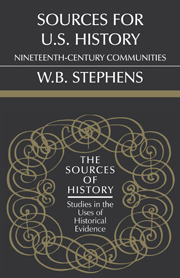Book contents
- Frontmatter
- Contents
- Author's preface
- List of abbreviations
- 1 Introduction
- 2 Demography
- 3 Ethnicity and race
- 4 The land, settlement, and farming: I
- 5 The land, settlement, and farming: II
- 6 Religion
- 7 Local government, politics, and organized labor
- 8 Manufacturing, mining, and business activity
- 9 Maritime activity, communications, and the fur trade
- 10 Education
- 11 Poverty, health, and crime
- Index
5 - The land, settlement, and farming: II
Published online by Cambridge University Press: 05 June 2012
- Frontmatter
- Contents
- Author's preface
- List of abbreviations
- 1 Introduction
- 2 Demography
- 3 Ethnicity and race
- 4 The land, settlement, and farming: I
- 5 The land, settlement, and farming: II
- 6 Religion
- 7 Local government, politics, and organized labor
- 8 Manufacturing, mining, and business activity
- 9 Maritime activity, communications, and the fur trade
- 10 Education
- 11 Poverty, health, and crime
- Index
Summary
There are many records, other than those of the federal government, which illuminate the study of land settlement and its use.
STATE AND LOCAL GOVERNMENT RECORDS
In addition to the federal agricultural census records, some published and unpublished records of similar state censuses may survive. A census of Iowa for 1856, for instance, resulted in a printed volume summarizing by township manuscript-schedule data on farm acreages and improved and unimproved farm land. The New York state decennial censuses from 1825 through 1875 contain information on agriculture and land-ownership. In 1885 censuses which embraced agricultural information were taken in the states of Nebraska, Colorado, and Florida and the territories of New Mexico and Dakota. Copies of the manuscript schedules are available in the National Archives (RG 29) and on microfilm, for all but Dakota for which the schedules are missing. Since these censuses provide similar information to that found in the federal census returns of 1880 and are for a period five years after the last available federal schedules, they are likely to be very valuable for localities in the areas concerned. They contain names of farm owners, information on tenure, acreages, and farm values, details of costs, estimated values of various farm products, and numbers of different types of livestock.
It is not possible to deal here with other relevant records of each state. They are likely, however, to be equally as important as federal records for the community historian.
- Type
- Chapter
- Information
- Sources for U.S. HistoryNineteenth-Century Communities, pp. 207 - 238Publisher: Cambridge University PressPrint publication year: 1991



